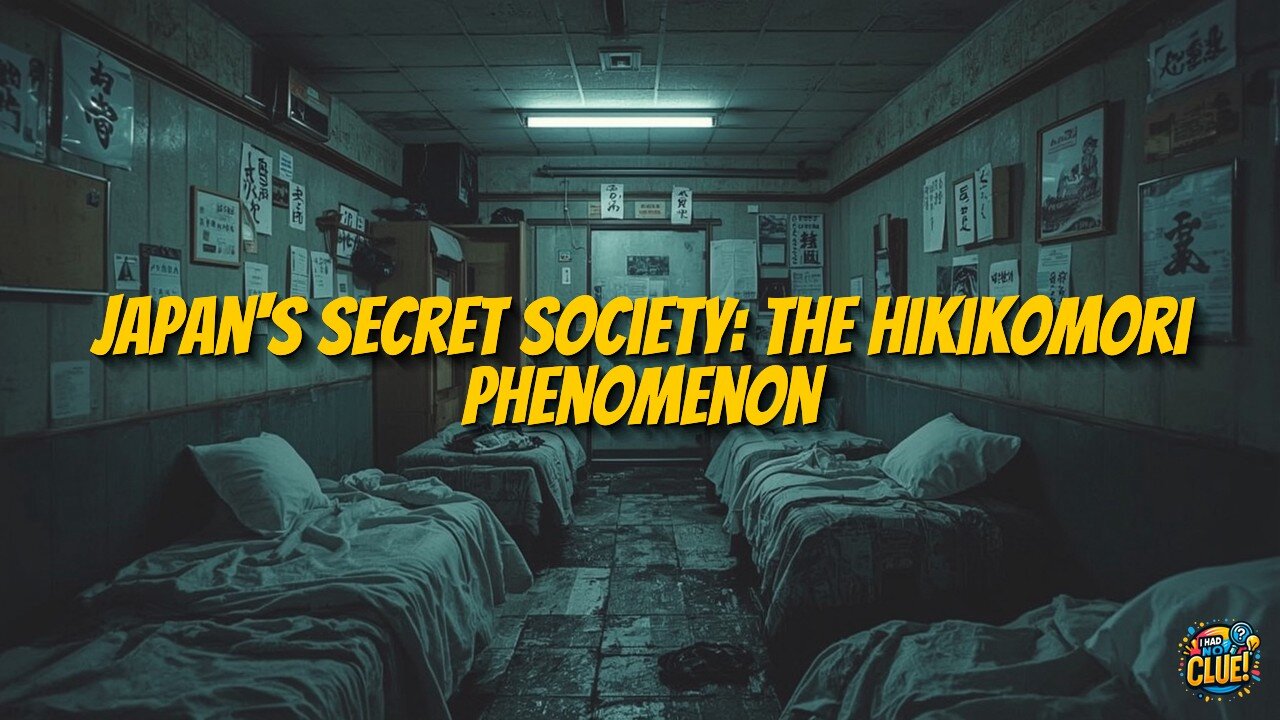Premium Only Content

Hikikomori: Japan's Hidden Crisis of Social Withdrawal
Hikikomori is a Japanese social phenomenon that describes individuals who withdraw completely from society for six months or longer, often remaining confined to their homes for years or even decades. First identified by psychiatrist Tamaki Saitō in the 1990s, this condition affects approximately 1.15 million Japanese citizens (nearly 1% of the population) across age groups, with 70-80% being male. Unlike typical mental health conditions, hikikomori often exists independently of other psychiatric disorders, suggesting it may be culturally specific. The condition is enabled by Japan's rigid social expectations, high-pressure education system, complicated employment structures, and advanced technology that facilitates isolated living. While initially considered uniquely Japanese, similar patterns have emerged globally, particularly in South Korea. Treatment approaches include specialized support centers, "rental sisters" programs, and digital therapy. The aging hikikomori population presents a looming crisis as elderly parents can no longer support their middle-aged withdrawn children, raising profound questions about social disconnection in modern society.
-
 UPCOMING
UPCOMING
Sarah Westall
1 hour agoBoardroom and Government Infiltration: The Silent Erosion of American Power w/ Mike Harris
225 -
 LIVE
LIVE
Mally_Mouse
21 hours ago🎮 Let's Play!!: Stardew Valley pt. 33
193 watching -
 LIVE
LIVE
VapinGamers
28 minutes agoForlight 84/Fortnite: Rum Bot Testing - Gaming, Coding and Other Things - !rumbot !music
39 watching -
 LIVE
LIVE
OhHiMark1776
2 hours ago🟢 11-21-25 ||||| Two Morrows make a Day-to-Day? ||||| Livestream (2025)
37 watching -
 DVR
DVR
GrimmHollywood
10 hours ago🔴LIVE • GRIMM HOLLYWOOD x SILVER FOX • GOLDEN YEARS • FINAL DAY • FLARE RACE • ARC RAIDERS •
1.4K -
 1:11:24
1:11:24
The Daily Signal
3 hours ago $1.33 earned🚨BREAKING: Democrat Steals $5 Million from FEMA, Trump-Mamdani Meeting Gets Bizarre
3.7K -
 1:02:11
1:02:11
BonginoReport
5 hours agoJ.D. Vance Threatens to Kill JD Vance?! - Nightly Scroll w/ Hayley Caronia (Ep.183)
90.9K31 -
 3:09:50
3:09:50
Nerdrotic
16 hours ago $12.50 earnedWarner Bros Fire Sale! | Last Ronin CANNED | WICKED For Good REVIEW - Friday Night Tights 381
36.9K9 -
 LIVE
LIVE
Akademiks
2 hours agoMeg Thee Stallion Back LYING again? Offset vs Finesse2x. 6ix9ine house robbed.. HERES WHO DID IT
816 watching -
 LIVE
LIVE
SpartakusLIVE
2 hours agoFriday Night HYPE w/ YOUR King of Content
135 watching